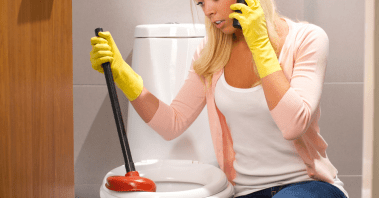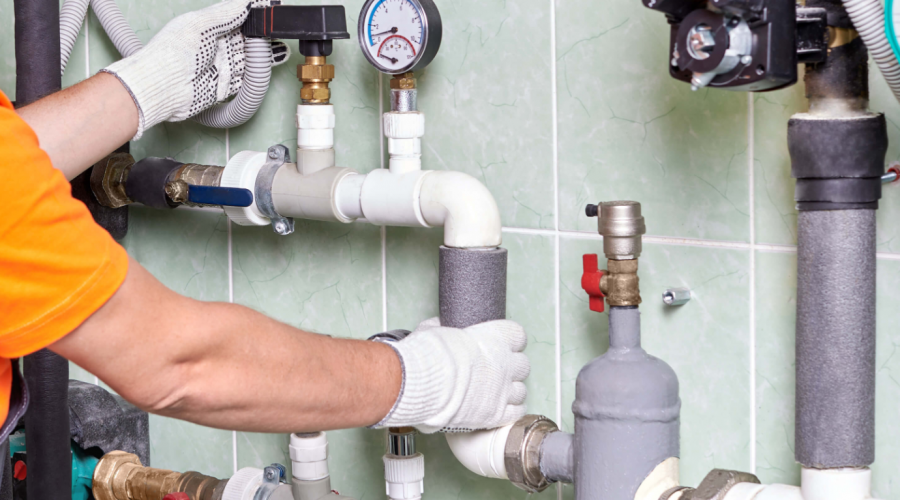Effective Solutions for Pipe Emergencies: Essential Steps to Take Until Help Arrives
Effective Solutions for Pipe Emergencies: Essential Steps to Take Until Help Arrives
Blog Article
This post listed below in relation to Expert Tips for Managing a Plumbing Emergency Until Help Arrives is totally compelling. Read on and draw your own findings.

Pipes emergency situations can strike at any time, causing tension and potential damage to your home. Whether it's a ruptured pipeline, a clogged up drainpipe, or a leaking faucet, understanding how to take care of the scenario till an expert plumber gets here can conserve you from additional problems. This write-up supplies vital emergency pipes ideas to assist you mitigate damages and reclaim control throughout a plumbing crisis.
Switch off the Water System
The primary step in any pipes emergency is to shut off the water. For local problems, such as a leaking faucet or toilet, switch off the shutoff near the fixture. When it comes to a major leakage or burst pipe, situate your home's primary water shut-off valve and transform it off instantly. Knowing the area of these valves in advance can save valuable time during an emergency situation.
Address Tiny Leakages with Temporary Solutions
Small leaks can rapidly end up being significant issues if left untreated. Make use of these short-term fixes up until specialist assistance shows up:
While these solutions aren't permanent, they can assist minimize water loss and damage.
Unclog Drains Pipes Safely
A stopped up drain can be a discouraging and messy problem. Below's how to tackle it:
If these techniques do not work, stay clear of using extreme pressure, as it may aggravate the blockage.
Handle Overflowing Toilets
An overruning commode can cause instant disorder. Here's what you ought to do:
Shut down Your Water Heater
In certain emergency situations, such as a burst pipe, it's important to shut off your water heater. This stops getting too hot or damages to the device when water stops flowing. Shut off the power supply to the water heater (electrical or gas) and allow it cool off to prevent prospective risks.
Briefly Stop a Burst Pipe
A burst pipeline can bring about substantial water damages in minutes. To minimize the issue:
Call an expert plumber right away to resolve the issue completely.
Handle Frozen Water Lines Meticulously
In colder climates, icy pipelines are a common emergency situation. If you believe an icy pipe:
Stop Additional Damages
Taking fast action to decrease damage can conserve you money and time in the long run. Below's exactly how:
. Have an Emergency Situation Plumbing Set
Prepare a basic pipes emergency set to handle small issues successfully. Your package ought to consist of:
Having these tools handy can make a significant difference in your capacity to take care of emergencies.
Know When to Call an Expert.
While quick fixes can aid temporarily, particular plumbing problems call for immediate expert focus. Call a plumbing if:.
Quickly calling a specialist guarantees the problem is settled appropriately and prevents further issues.
Verdict.
Pipes emergencies can be overwhelming, however with the ideal expertise and devices, you can manage the scenario effectively until assistance shows up. By switching off the water, addressing small leaks, and using short-term repairs, you can lessen damages and maintain your home safe. Bear in mind, these tips are temporary solutions; always speak with a licensed plumbing to deal with the source of the issue. Preparation and quick thinking are your best allies in any plumbing emergency situation.
Expert Tips for Emergency Plumbing Repairs
Plumbing emergencies can be incredibly stressful and inconvenient. Whether it’s a burst pipe, a clogged drain, or a leaky faucet, these common plumbing emergencies need immediate attention to prevent further damage to your home. But before you panic, it’s important to understand the basics of plumbing repairs and the steps you can take to address these emergencies. In this article, we will share some expert tips to help you navigate through these situations and minimize potential water damage.
Identifying Common Plumbing Emergencies
Leaky pipes and faucets Clogged drains and toilets Burst pipes Low water pressure Water heater problems Essential Tools for Plumbing Repairs
Plunger: Useful for unclogging toilets and drains Adjustable wrench: Needed for tightening or loosening nuts and bolts Pipe wrench: Ideal for gripping and turning pipes Tape measure: Necessary for accurate pipe measurements Plumber’s tape: Helps create watertight seals Understanding Emergency Plumbing Services
Emergency plumbing services are designed to provide immediate assistance for unexpected plumbing issues that can cause significant damage to your home, business, or health. These services are typically available 24/7 and are staffed by experienced plumbers who can quickly diagnose and repair a wide range of plumbing problems.
When a plumbing emergency strikes, time is of the essence. Whether it’s a burst pipe flooding your basement or a gas leak posing a serious risk, emergency plumbing services ensure that help is just a phone call away. These professionals are equipped with the tools and expertise to handle any situation, minimizing damage and restoring your plumbing system to proper working order.
What Constitutes a Plumbing Emergency?
Burst pipes or water supply lines: These can cause extensive water damage and need immediate repair to prevent flooding. Gas leaks or suspected gas leaks: Gas leaks are extremely dangerous and require prompt attention to avoid potential explosions or health hazards. Sewer backups or overflows: These can lead to unsanitary conditions and significant property damage. Clogged drains or toilets causing water to overflow: Overflowing water can damage floors, walls, and other structures. Leaks or water damage causing structural damage: Persistent leaks can weaken the structural integrity of your home or business. No hot water or heating: A lack of hot water can be more than an inconvenience, especially in colder months. Common Causes of Plumbing Emergencies
Aging or corroded pipes: Over time, pipes can deteriorate, leading to leaks or bursts. Improperly installed or maintained plumbing fixtures: Faulty installations or lack of maintenance can result in unexpected failures. Tree roots or other debris infiltrating your sewer line: Roots can grow into pipes, causing blockages and backups. Frozen pipes or water supply lines: In colder climates, pipes can freeze and burst, leading to significant water damage. High water pressure or sudden changes in water pressure: Excessive pressure can strain pipes and fixtures, causing them to fail. Natural disasters such as floods or earthquakes: These events can disrupt your plumbing system and cause severe damage. Steps to Minimize Water Damage
Locate the water shut-off valve: Knowing where the valve is can help you quickly cut off the water supply to the affected area. Turn off the water heater: If there’s a risk of water coming into contact with the heating element, make sure to turn off the water heater to avoid potential accidents. Open faucets and drain pipes: By opening faucets and drain pipes, you can relieve pressure and empty any standing water. Collect and contain water: Use towels, buckets, or bins to collect water and prevent it from spreading to other areas of your home. https://leecountyplumbingandwellservice.com/expert-tips-for-emergency-plumbing-repairs/

I discovered that piece of writing about What to Do While Waiting for an Emergency Plumber when doing a search on the web. Sharing is nice. Helping others is fun. I praise you for your time. Come back soon.
Click Here Report this page